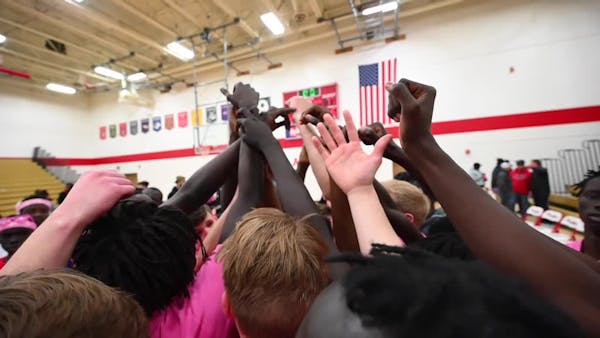Imagine being a college basketball coach trying to prepare for a season that is less than a month away, not knowing if a transfer who is one of your top players is going to be on the court when it counts.
Coaches all over the country — from the Big Ten to smaller conferences — still are waiting anxiously to hear the fate of transfers seeking eligibility waivers, which could change the entire course of their seasons.
Kentucky recently became a stronger Final Four candidate and a top-five team in early preseason rankings with 7-foot Wake Forest transfer Olivier Sarr being given immediate eligibility.
Richard Pitino and the Gophers could see their Big Ten and national projections jump if things go in their favor for Utah transfer Both Gach before the season starts Nov. 25.
The Gophers on Monday finally submitted Gach's waiver to the NCAA, sources told the Star Tribune. This comes more than four months after the former Austin High School standout announced his transfer.
The NCAA seems to be handing waivers out like Halloween candy this offseason. But there is still no rhyme or reason. Even though Pitino anticipates a favorable outcome, the coach said recently he will "knock on wood" on Gach's waiver being granted.
Dealing with the NCAA's waiver process is never a slam dunk, but Gach's case seems as close to that as any. He is returning to Minnesota during a time when being closer to home is even more important during the pandemic.
Still, talented Drake transfer Liam Robbins' waiver was supposed to be easier than it ended up. The 7-foot Iowa native wanted to play with family members, with his uncle and cousin on the Gophers squad, but he wasn't ruled immediately eligible until Sept. 2. The NCAA asked the U's compliance office for more info when Drake wouldn't initially sign off on the first waiver request.
With the NCAA not likely to pass its one-time transfer rule until next year, non-graduate transfers and their new schools had to go through these steps for waivers in 2020-21:
• The new school submits what is called a 4-4 transfer waiver when there are circumstances out of the athlete's control leading to the transfer — i.e., toxic situation, mental health, coaches running off players.
• The NCAA staff reviews the waiver with a turnaround time typically of 21 days, but these requests are never considered urgent.
• The NCAA staff notifies the new school of the approved or denied waiver. Schools need to request an appeal within 30 days of the decision.
• A seven-member Division I Committee for Legislative Relief makes the final judgment on the waiver considering the purpose of the transfer, the competitive or recruiting advantage and the overall well-being of the athlete.
Details on Gach's waiver request and why it took so long to send haven't been disclosed. But making the paperwork easier for his previous school to support was a critical step for the Gophers. The Utes didn't want to lose him.
The versatile and athletic 6-6 guard was second on Utah in scoring (10.7 points per game) and third in assists (2.9) last season, shooting 77.5% from the free-throw line.
Having the program the athlete left help decide his or her fate to play somewhere else seems ludicrous, and the concept is often slammed by the game's most vocal personalities. ESPN's Jay Bilas recently wrote a scathing column on how Miami (Ohio) handled Nike Sibande's transfer to Pittsburgh.
Could it be karma that Pitt is having trouble getting a talented guard transfer immediately eligible when the Panthers made it difficult for Marcus Carr to play for the Gophers when his waiver was denied twice by the NCAA two years ago? Carr became an All-Big Ten player last season after sitting out 2018-19.
But now after understanding the waiver process even more through situations with Carr and Robbins, the Gophers took their time with Gach in hopes of it paying off soon.
Marcus Fuller covers the Gophers and college basketball for the Star Tribune. marcus.fuller@startribune.com




